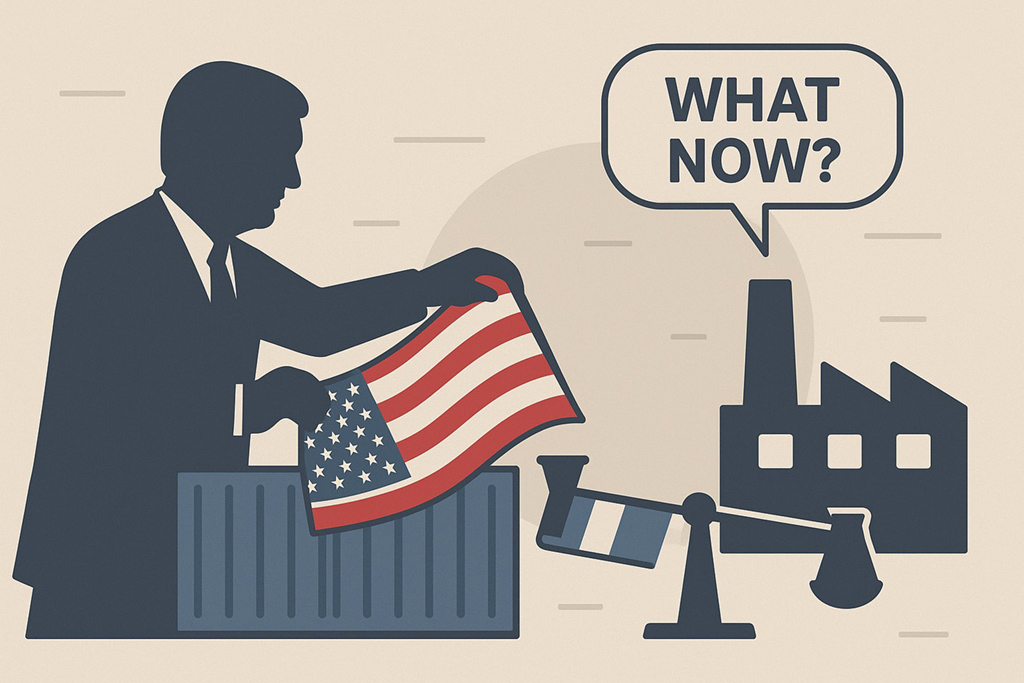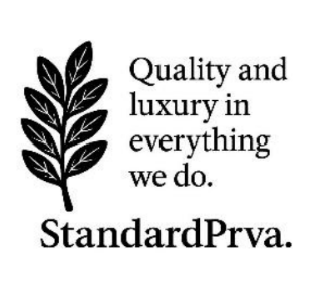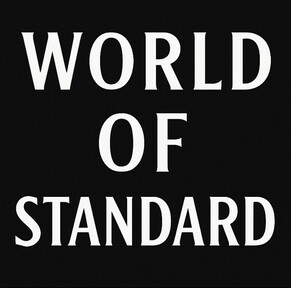Standard Case Study: Announcement of 30% Tariffs by the Trump Administration and Its Impact on Bosnia and Herzegovina
08.07.2025Bosnia and Herzegovina has a relatively modest volume of trade with the United States, but that volume has grown over the past decades. Trade exchange between BiH and the USA accounts for about 1% of BiH’s total foreign trade. Still, in the last ten years, a significant growth has been noticeable – total exchange increased by about 71%. The table below shows the value of exports from BiH to the U.S. and imports from the U.S. to BiH by year (in millions of BAM):
YearBiH Exports to U.S.BiH Imports from U.S.201564.7 mil. BAM441.2 mil. BAM201671.6 mil. BAM327.7 mil. BAM201773.3 mil. BAM584.8 mil. BAM201865.2 mil. BAM631.2 mil. BAM201952.2 mil. BAM673.9 mil. BAM202067.4 mil. BAM403.3 mil. BAM2021155.0 mil. BAM535.6 mil. BAM2022177.1 mil. BAM954.9 mil. BAM2023202.5 mil. BAM791.3 mil. BAM2024233.7 mil. BAM633.4 mil. BAM
Source: Foreign Trade Chamber of BiH / Agency for Statistics of BiH.
We see that BiH’s exports to the U.S. increased from around 50–70 million BAM in the early 2010s to over 200 million BAM in recent years, while imports from the U.S. have varied (depending on calculation methodology) but generally BiH imports more from the U.S. than it exports. For example, in 2017 BiH exported goods worth about 74 million BAM to the U.S., while in 2024 exports reached approximately 234 million BAM. On the other hand, imports from the U.S. (mainly oil, mineral fuels, industrial equipment, etc.) often exceeded exports; for instance, in 2024 around 190 million BAM was imported according to the Foreign Trade Chamber data (or over 600 million BAM according to statistics by product origin). Despite methodological differences, it is clear that BiH traditionally runs a trade deficit with the U.S. (imports exceed exports).
The trade structure is specific. The most important export products from BiH to the U.S. over the years have been defense industry products, metals and metal products, furniture, and some food products. On the other hand, imports from the U.S. consist mainly of energy carriers (e.g., in the first two months of 2018, as much as 42 million BAM out of a total 55.8 million BAM of imports were mineral fuels and oils), then industrial machines and equipment, vehicles, as well as certain agricultural products (e.g., fruit, nuts, etc., worth several million BAM annually).
Industries and Firms from BiH on the U.S. Market
The defense (military/repair) industry stands out as the most significant sector in exports to the U.S. Over half of total Bosnian exports to the U.S. consist of weapons, ammunition, and related equipment. As early as 2017, BiH exported about 26 million BAM worth of weapons and ammunition to the U.S. (which at the time was the largest single export item). Since then, that amount has increased manifold – in the first three months of 2025, exports of weapons to the U.S. amounted already to 41 million BAM, and throughout 2024 it is estimated that about 135 million BAM worth of military equipment was placed on the U.S. market. The main actors are companies from the defense sector such as Igman Konjic (ammunition), Unis Ginex Goražde (primers and initial explosives), Pretis Vogošća (ammunition and projectiles), etc. — which recognized the opportunity in increased global demand for ammunition and armament, including in the U.S. They have been actively present in U.S. fairs in recent years (such as the SHOT Show in Las Vegas) and are entering multimillion-dollar deals with American partners. This success in the defense industry brought new jobs and expansion of production capacities in BiH.
Besides military equipment, the metal-processing sector records noticeable exports. BiH, for instance, has continuously exported ferrosilicon, zinc and zinc products to the U.S. (for example, about 3.8 million BAM of zinc in the first three months of 2025), as well as certain iron and steel products (around 3.4 million BAM in the same period). Some Bosnian companies in this field (e.g., manufacturers of aluminum parts, metal tools, etc.) managed to find niches in the U.S. market – partly through the use of Generalized System of Preferences (GSP) benefits while it was in force.
The wood industry and furniture also have some access to the U.S. market. Although the EU market dominates for Bosnian furniture, Bosnian furniture found its way to the U.S. through specialized traders or online channels. According to Foreign Trade Chamber data, furniture was among the top 5 export categories in a five-month period (behind weapons and metals).
Food products: Although smaller in volume, Bosnian food companies have succeeded in placing their products with American buyers, mainly targeting the diaspora. It is known that some Bosnian food firms export products (e.g., confectionery, fruit preserves, spices, even traditional products) to the U.S. market, relying on diaspora consumers and specialized ethnic trade. This shows that, although main export figures are tied to industrial goods, there is also export of consumer goods (like food) from BiH to the U.S., but in niche scopes.
In summary, the opportunities on the U.S. market have so far been most utilized by:
Defense industry companies – rapid growth in ammunition and arms exports with active search for partners and customers in the U.S.
Metal and metal-processing firms – export of specific alloys, metals and tools that find buyers in the U.S. (often due to competitive prices with preferences).
Furniture and wood product manufacturers – to a smaller extent, through quality furniture that is sought globally.
Food and other light industries – mainly through ethnic channels and online sales, reaching a smaller segment of buyers.
Trump Administration Trade Measures (2017–2021)
The administration of President Donald Trump (2017–2021) pursued more protectionist trade policies that affected BiH too. Key measures included:
Global tariffs on steel and aluminum (2018) – In spring 2018 the Trump administration introduced additional tariffs of 25% on all steel imports and 10% on all aluminum imports to the U.S., citing national security. Though BiH is not a large exporter of steel/aluminum directly to the U.S., these tariffs meant any potential export of those metals from BiH becomes more expensive for American buyers, and indirectly affected Bosnian metal-processing companies whose products are integrated into European goods for the U.S. market. (Note: The EU suffered impact from these tariffs, so BH firms integrated into EU supply chains were also affected.)
Generalized System of Preferences (GSP) – BiH enjoyed trade preferences under the GSP U.S. program. That program allowed duty-free export of about 3,500 products from BiH to America until the end of 2020. However, the program expired end-2020 and was not renewed by the U.S. Congress. Thus numerous products from BiH lost privileged status and became subject to regular tariffs, additionally burdening export-oriented BH companies. For example, according to USTR data, about 25% of BiH’s U.S. exports in 2018 fell under GSP preferences (e.g., ferrosilicon, certain tools, aluminum products) – ending GSP meant these products again incurred tariffs of several percent or more, reducing their competitiveness.
Threats of high tariffs and “reciprocal” measures – the Trump administration often emphasized reciprocal tariffs. In public statements and addresses, President Trump claimed many countries (including BiH) impose high tariffs on American goods, so the U.S. would retaliate in kind. In one address he even pointed out that BiH allegedly charges 70% tariffs on U.S. products, and thus the U.S. would impose 35% tariffs on goods from BiH. (Note: In reality BiH applies tariff rates in line with EU external tariff and does not impose such extreme charges; the 70% figure likely referred to certain agricultural products or cumulative dues. Still, this Trump announcement affected the perception that BiH could be targeted with trade sanctions.)
“2018 letter” and tariff announcements – At the end of 2018 and start of 2019, news emerged that the Trump administration was considering imposing special tariffs on countries with which the U.S. has trade deficits or that collaborate with U.S. geopolitical rivals. Although BiH is not central to those global trade disputes, it appeared on a list of countries that could feel increased tariffs due to a wider package of measures. This was later concretized after Trump’s mandate (in 2025) with the announcement of universal tariffs, but already in 2018 Bosnian entrepreneurs were watching Trump’s moves carefully and expressing concern that they could be “collateral” affected, given the small yet growing export to the U.S.
In short, Trump’s trade policy introduced uncertainty for BH exporters. Exports to the U.S. were not enormous, but any policy shift by a global power echoes in BiH. Particularly important for BiH was preserving privileges (like GSP) and avoiding any “trade war” between U.S. and EU which could indirectly hit our industries tied to EU supply chains.
Impact of U.S. Tariffs on BH Exporters and Business Perception
Loss of GSP preferences at the end of 2020 immediately affected exporters. As highlighted by the Foreign Trade Chamber, ending GSP raised costs for BH firms exporting to the U.S., since products that had entered duty-free for years suddenly became burdened by tariffs. This reduced competitive advantage on the U.S. market. Businesses lobbied for GSP restoration – as far back as 2021 it was announced that U.S. might temporarily lift tariffs on around 200 tariff lines for BiH, but to date the program has not been reactivated, leaving exporters disadvantaged.
Trump’s metal tariffs in 2018 had an indirect effect. BiH exporters of steel, aluminum (and metal products) had to account for their goods being 25%/10% more expensive in the U.S. market. Some tried to redirect to other markets, while others (part of EU chains) saw order volumes drop. Industry representatives from metal-processing sector in BiH noted in 2025 that these tariffs were “unexpectedly high” and raise concern, and when combined with other charges (e.g., EU’s CBAM CO₂ tax) can lead to demand reductions and production sustainability issues.
The announced universal 35% tariff on all goods from BiH (under Trump’s reciprocal package) caused real panic among exporters in early 2025. News from America “worried and led entrepreneurs to hold their heads,” because a direct hit on exports of 35% meant drastic loss of competitiveness of BH products in the U.S. Estimates show the biggest burden would fall on the defense industry – its products were previously entering under about 12% tariff (MFN rate for arms), and suddenly it would jump to 35%. Around 135 million BAM of ammunition exports yearly would be affected, lowering margins or requiring higher prices (which may scare buyers).
At the same time, indirect effects of tariff wars may be even more significant for BiH. As economists emphasize, many BH companies supply European firms that export final products to the U.S. – e.g., our automotive sector, metal and machinery sectors supply parts to German or Italian industry. If U.S. tariffs increase prices of European products in America, European buyers may reduce production and orders of components from BiH. The Bosnian auto industry especially fears that if tariffs are imposed on vehicles, deliveries of Bosnian auto parts would significantly drop, because auto manufacturers could relocate production or parts sourcing to the U.S. Armin Hodžić, head of the Automotive Group, warned that closing the American market would lead to reduced demand for parts from BiH – due to lower EU vehicle exports and relocation of component production to the U.S.
Generally, BH companies are aware of their limited power in these global turbulences. BiH constitutes only 0.05% of global economy and cannot significantly influence big powers’ decisions. Entrepreneurs and chamber representatives point out that in these situations there is little choice but to adapt – in short term accept lower profit or seek alternative markets, and in long term urge authorities to engage diplomatically and make crisis plans. At the same time, these developments have raised awareness among companies about the need for diversification: reliance on a single large market block (EU) or a single niche (e.g., just ammunition) carries risks when the geopolitical landscape changes.
How to Improve Access of BH Firms to the U.S. Market
Despite challenges, there are steps BH companies can take today to better approach the U.S. market and take advantage of potential:
Finding strategic partners in the U.S.: Successful entry into the U.S. market often requires a local partner. It is recommended that BH firms establish cooperation with U.S. distributors or partners who have good market knowledge. This can be through distribution agreements, joint ventures with U.S. companies, or hiring sales representatives in the U.S. Such partners help navigate regulations, business culture, and on-the-ground logistics.
Using e-commerce and digital channels: E-commerce platforms provide opportunities even for smaller companies to directly offer products to customers across the ocean. Opening shops on platforms like Amazon, eBay, Etsy (for handicrafts and specialty products) or own webshops with shipping to the U.S. can significantly expand reach. Similarly, investing in digital marketing targeted to the U.S. (Google, Facebook/Instagram ads aimed at diaspora and interested groups) can increase brand awareness.
Adapting legal and tax structure: The U.S. market requires compliance with certain standards and it can be useful to establish a representative office or subsidiary in the U.S. to facilitate business. This simplifies compliance (e.g., product registration with FDA for food/consumer goods, obtaining necessary licenses for certain goods, etc.). Through local presence, firms can also leverage favorable tax arrangements in certain states (e.g., states with lower taxes) and avoid double taxation using the BiH–U.S. tax treaty. Also, meeting U.S. quality/safety standards (e.g., UL certificates for electronics, ASTM standards for materials) is crucial for product acceptance.
Customs relief and benefits: Although GSP is not currently in effect, BiH should actively work on lobbying for reinstatement or similar reliefs. In the meantime, firms can fully utilize existing options: correct tariff classification to pay lower duties, using U.S. free trade zones if shipping through them, and using duty drawback when imported goods are exported again after processing. Any savings on duties improves price competitiveness.
Models of cooperation and presence in the market: A long-term strategy may include opening production facilities or warehouses in the U.S. For example, if a product performs well, a firm might consider final assembly or manufacturing in the U.S. (thus labeling products as “Made in USA” and avoiding import duties or reducing transport costs). Alternatively, franchising—where BH brand enters the market through licensing to a U.S. partner—can be a growth model (more applicable to services or food sector, e.g., restaurant chains). Also, strengthening ties with the BH diaspora in the U.S. can help: our diaspora often supports national products, so engaging emigrants as promoters, distributors, or investors can ease market entry.
Diversification and product adaptation: Analyses show BiH must reduce dependence on a narrow set of products and markets, including the U.S. Market. Firms are recommended to tailor products to U.S. tastes and requirements – e.g., food products need FDA-compliant labeling and taste adjustments; industrial products must meet U.S. technical standards. Investing in innovation and quality can be decisive for long-term success. Also, they should continuously research the market – there may be niches in the U.S. that BH firms haven’t targeted yet (e.g., organic and halal products, IT services and software, etc.).
Institutional support and promotion: At the state and chamber level, it is necessary to continue opening doors: organize trade missions to the U.S., participation in fairs (as already started by the defense industry), presentations of BH investment opportunities in U.S. cities, and leveraging diplomatic channels to promote trade. BiH should also use regional initiatives – for example, if a neighboring country has a better trade agreement with the U.S., through regional collaboration it might facilitate access for our firms (e.g., joint participation of Western Balkan firms in the U.S. market under some initiative).
Conclusion
The U.S. market poses significant challenges but also potential rewards. BH firms have so far proven themselves mainly in niches such as ammunition and certain metals, using favorable opportunities. In the future, with a proactive approach—from product adjustments, partnerships, and e-commerce, to seeking privileges—the firms can increase their presence in America. It is also important for the state to provide strategic support through diplomacy and barrier removal. As experts say, market and product diversification and creation of appropriate policy measures are steps that can mitigate negative effects and ensure long-term export growth. BiH may not have much influence over global game rules, but it can be agile and ready to seize every opportunity in the demanding yet profitable U.S. market.
StandardPrva helps clients overcome all forms of tariff problems.
References: BiH Agency for Statistics (BHAS); Foreign Trade Chamber of BiH (VTK); Bloomberg Adria; Faktor/BiznisInfo; Foreign Trade Chamber of BiH; Radio Free Europe; BL-Portal.
/ / /
"Standard Prva" LLC Bijeljina is a company registered in Bijeljina at the District Commercial Court in Bijeljina. Company’s activities are accountancy, repurchases of receivables, angel investing and other related services. Distressed debt is a part of the Group within which the company repurchases the receivables, which function and are not returned regularly.
Lawyer’s Office Stevanović is the leading lawyer’s office in the region with the seat in Bijeljina. The LO abbreviation represents Lawyer’s Office of Vesna Stevanović and Lawyer’s Office of Miloš Stevanović.
Contact for media press@advokati-stevanovic.com or via telephone 00 387 55 230 000 or 00387 55 22 4444.





